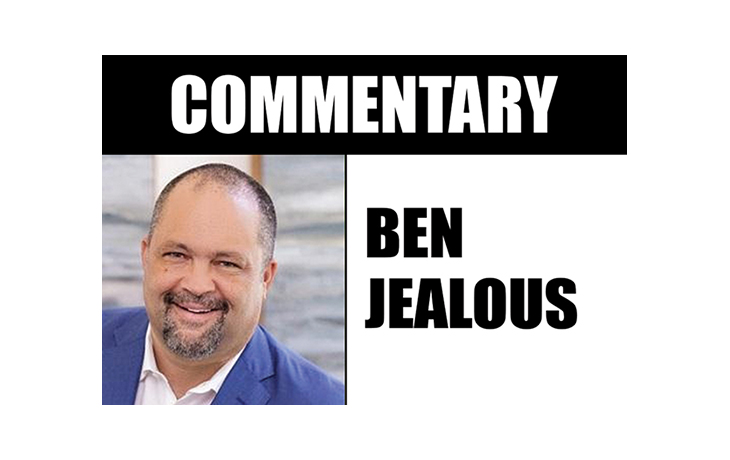Family strolling in the late afternoon in the city park – Getty Images stock photo
by Ben Jealous
(TriceEdneyWire.com)—Forever home. That’s how folks from Aurora I met last week describe the houses they bought outside Denver.
Now those dream homes are caught in what may be America’s most dire urban fracking nightmare.
Over the last year, residents have discovered, and began a grassroots challenge against, a plan to erect 174 10-story-high oil wells that stretch horizontally underground for thousands of feet.
The project is to be built next to a pristine, vital reservoir that hugs on the city’s edge and shares its name. Nearby communities without reservoirs buy their water from Aurora. The snowmelt-fed water is so clean you can drink it while you swim in it.
That all could change fast. Civitas, an oil company whose biggest investor is the Canadian equivalent of the Social Security Administration, wants to frack—inject water, sand, and toxic chemicals underground to free oil —under the reservoir, neighborhoods, and close to a Superfund toxic waste site. The entire area in the proposal is more than 33,000 acres with one drilling pad within 3,000 feet of a neighborhood.

What started as a Facebook page grew into a full-fledged campaign involving residents and allied environmental groups pushing city, county, and state officials to stop the fracking proposal from moving forward. Residents only learned of the plan when Civitas started trying to acquire the mineral rights under their houses and common areas controlled by homeowners’ associations.
When they go to a hearing, “it’s the suits versus the t-shirts” says Marsha Goldsmith Kamin, referring to the blue shirts she and other opponents wear. Kamin and her husband learned about the fracking proposal after they moved in November to be closer to their three grandchildren. Opposing the wells amounts to a full-time job for the retiree now.
In Colorado, like most Western, states access to water remains a contentious issue. As its name suggests, the leading opposition group Save the Aurora Reservoir leads with the threat to drinking water for much of metro Denver.
Beyond the direct threat of fracking under and around the reservoir, the proposed wells will demand billions of gallons of water that end up so polluted they’re lost to other uses. So Aurora, which has experienced recent droughts, would see precious water used to produce fossil fuels that are accelerating climate change that can make water even more scarce.
The fracking would worsen Denver’s poor air quality as well. The Environmental Protection Agency (EPA) raised its concern about ozone levels in the Rockies’ Front Range from serious to severe last year. The proposed wells would emit thousands of tons of “volatile organic compounds” and nitrogen oxide that make up ozone.
The Superfund site, created by a now-closed Air Force base and city and county dumping, could be an unlikely hero in the story. The EPA won’t allow fracking under the unlined landfill, and more recently has raised questions about the impact of fracking close by on the already leaking site’s structural integrity. Opponents hope that federal concern will help sway regulators in Colorado.
Opponents have made progress. Civitas agreed to move five well sites. The county commission, which narrowly defeated a drilling halt, this week is considering closing loopholes to its oil and gas ordinances to ensure no development within a mile of the reservoir. U.S. Representative Jason Crow wrote to commissioners reiterating residents’ concerns.
But Save the Aurora Reservoirs activists are learning how far powerful interests can tilt the playing field. Civitas needs mineral rights from fewer than half of the property owners to force fracking on the rest. While the city has a one-mile setback preventing drilling near the reservoir, opponents must fight for the same from the county.
“We think it’s so obvious that the downside is so much greater than the upside. But it feels like so much of the structure—the laws and regulations and approval process—are really working against us,” says Julie Huygen, an Air Force veteran who moved to Aurora two years ago.
Kamin said she’s fighting for the grandchildren she relocated for. She’s energized by her eight-year-old granddaughter’s desire to take part. “She asked me, if they do that to the ground, where are the prairie dogs going to go?”
(Ben Jealous is executive director of the Sierra Club, the nation’s largest and most influential grassroots environmental organization.)